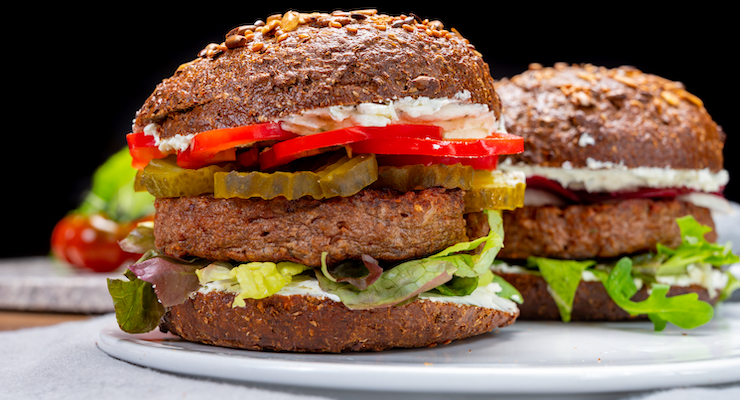Mike Montemarano, Associate Editor 01.21.21
In response to the quickly-growing market of plant-based alternatives to popular foods such as meats and cheeses, Gadot Biochemical Industries has announced the repositioning of several minerals expressly for the meat and cheese alternative market, Ohad Cohen, Gadot CEO, announced.
Typically, meat and cheese alternatives are produced by blending individual constituents and proteins to produce cheese and meat-like products to conform to specific requirements. “In the past few years, there has been an increase in demand for such products due to the rising trend of vegetarians and vegans as well as consumers seeking food products which contain less total fat, saturated fat, cholesterol, and calories,” Cohen said.
The company’s calcium citrate, calcium phosphate, tri sodium citrate, and magnesium phosphate serve as firming agent regulators and enable producers to control the texture and hardness of a product. Calcium citrate and calcium phosphate can also be implemented in cheese alternatives as a whitener when required. Additionally, tri sodium citrate is implemented mainly as a buffering or emulsifying agent, the company said.
Gadot cited a report from market research firm Packaged Facts which concluded that plant-based and vegan dairy and egg products will rise at an average annual rate of 6% to reach an estimated $5.2 billion by 2024, and increase from approximately $4.3 billion in 2020.
When producing meat or cheese alternatives, Cohen said that there are a number of aspects key to choosing the most suitable mineral source, such as stability in processing conditions, effect on taste, the texture of the final product, interaction with other ingredients, and health benefits for the consumer.
Each of these aspects can be controlled by carefully selecting ingredients and the manufacturing method. The leading factor is choosing the correct protein construction and binding agent.
Gadot’s mineral line is Halal and Kosher certified, and its ingredients can pass heat treatment of up to 150 degrees Celsius.
“As demand for plant-based meat and cheese alternatives continues to rise, texture and firmness remain critical for manufacturers to achieve,” Cohen said. “Brands tend to have only one opportunity at pleasing the consumer’s discerning palate when there’s so much new competition sprouting up.”
Typically, meat and cheese alternatives are produced by blending individual constituents and proteins to produce cheese and meat-like products to conform to specific requirements. “In the past few years, there has been an increase in demand for such products due to the rising trend of vegetarians and vegans as well as consumers seeking food products which contain less total fat, saturated fat, cholesterol, and calories,” Cohen said.
The company’s calcium citrate, calcium phosphate, tri sodium citrate, and magnesium phosphate serve as firming agent regulators and enable producers to control the texture and hardness of a product. Calcium citrate and calcium phosphate can also be implemented in cheese alternatives as a whitener when required. Additionally, tri sodium citrate is implemented mainly as a buffering or emulsifying agent, the company said.
Gadot cited a report from market research firm Packaged Facts which concluded that plant-based and vegan dairy and egg products will rise at an average annual rate of 6% to reach an estimated $5.2 billion by 2024, and increase from approximately $4.3 billion in 2020.
When producing meat or cheese alternatives, Cohen said that there are a number of aspects key to choosing the most suitable mineral source, such as stability in processing conditions, effect on taste, the texture of the final product, interaction with other ingredients, and health benefits for the consumer.
Each of these aspects can be controlled by carefully selecting ingredients and the manufacturing method. The leading factor is choosing the correct protein construction and binding agent.
Gadot’s mineral line is Halal and Kosher certified, and its ingredients can pass heat treatment of up to 150 degrees Celsius.
“As demand for plant-based meat and cheese alternatives continues to rise, texture and firmness remain critical for manufacturers to achieve,” Cohen said. “Brands tend to have only one opportunity at pleasing the consumer’s discerning palate when there’s so much new competition sprouting up.”




























